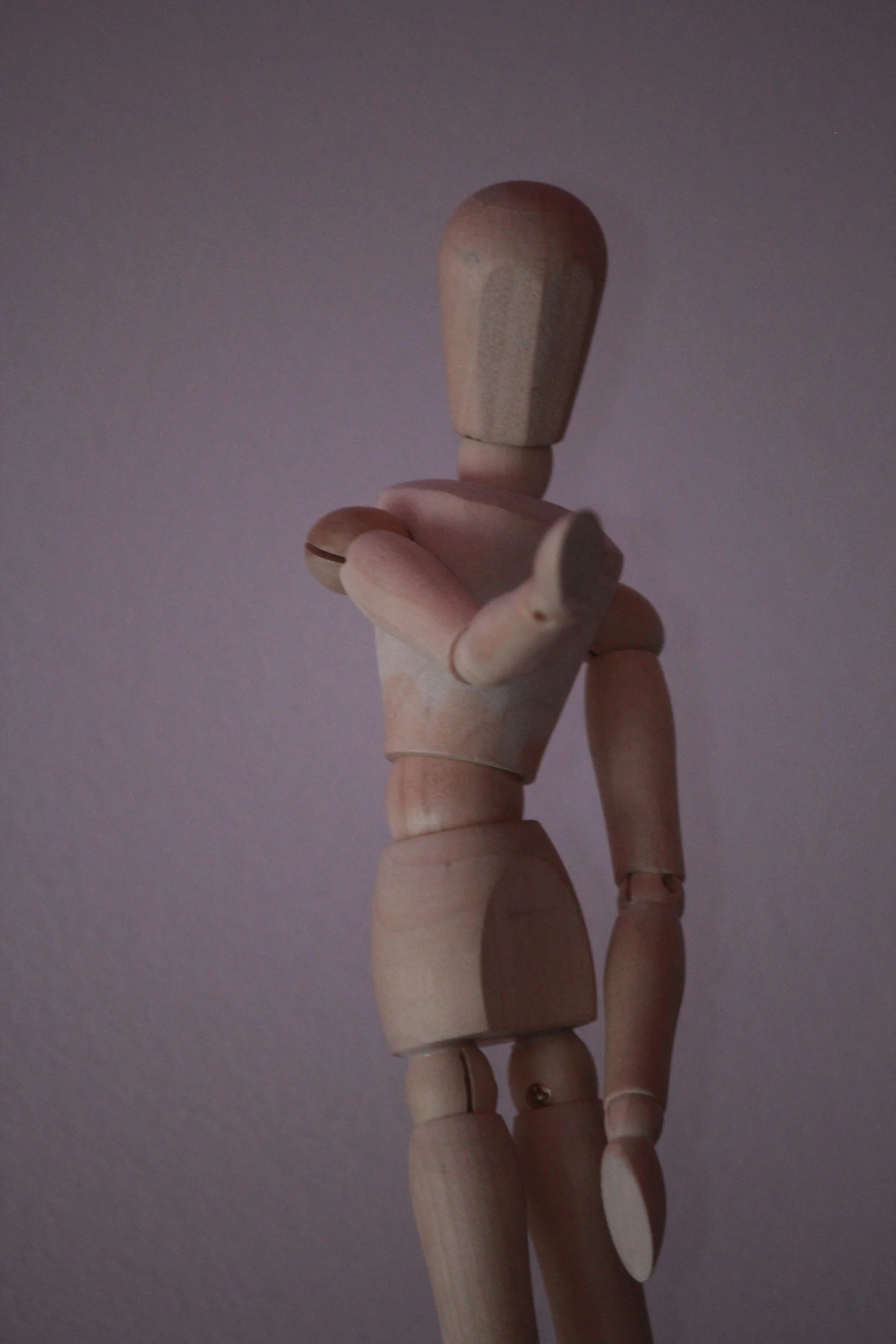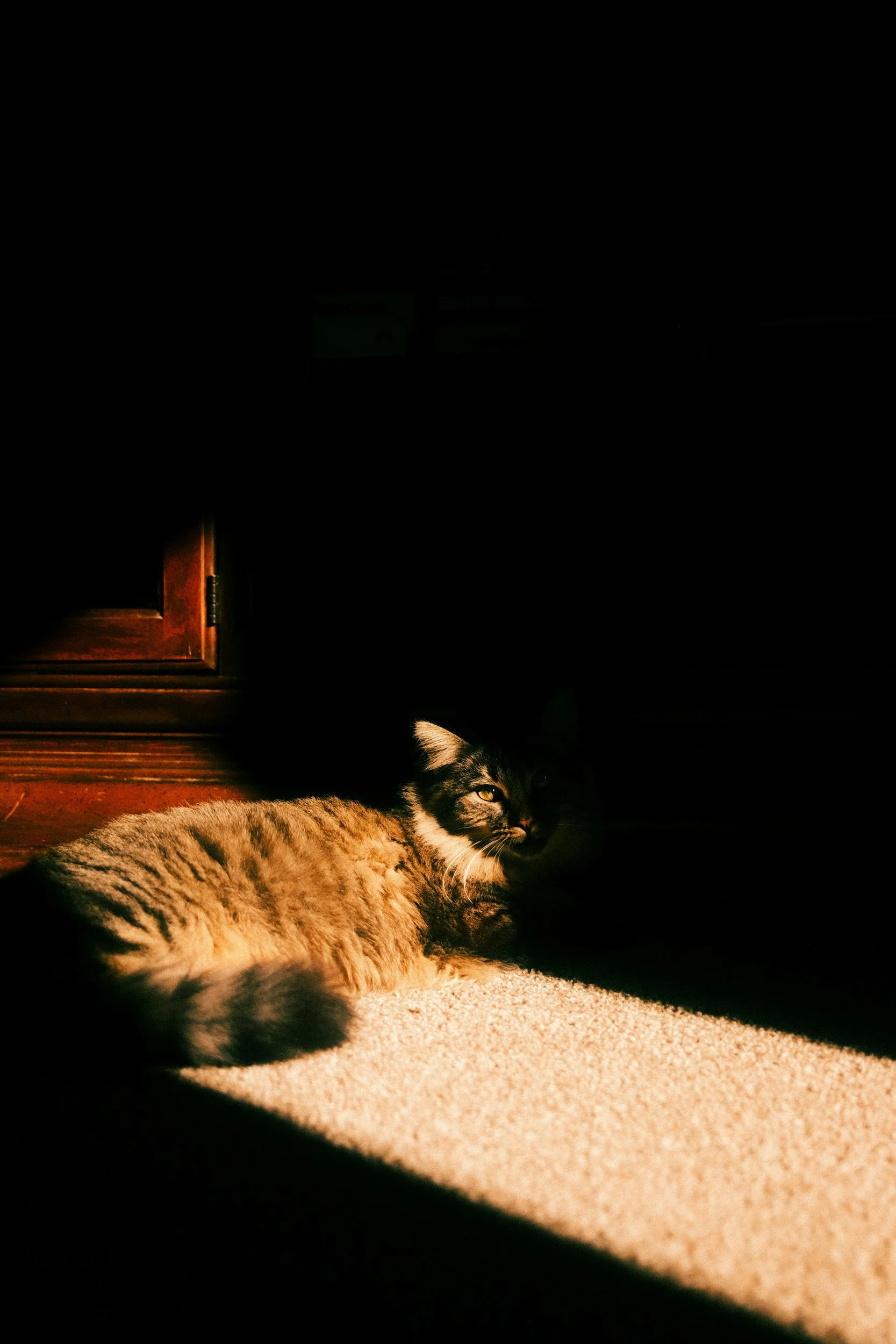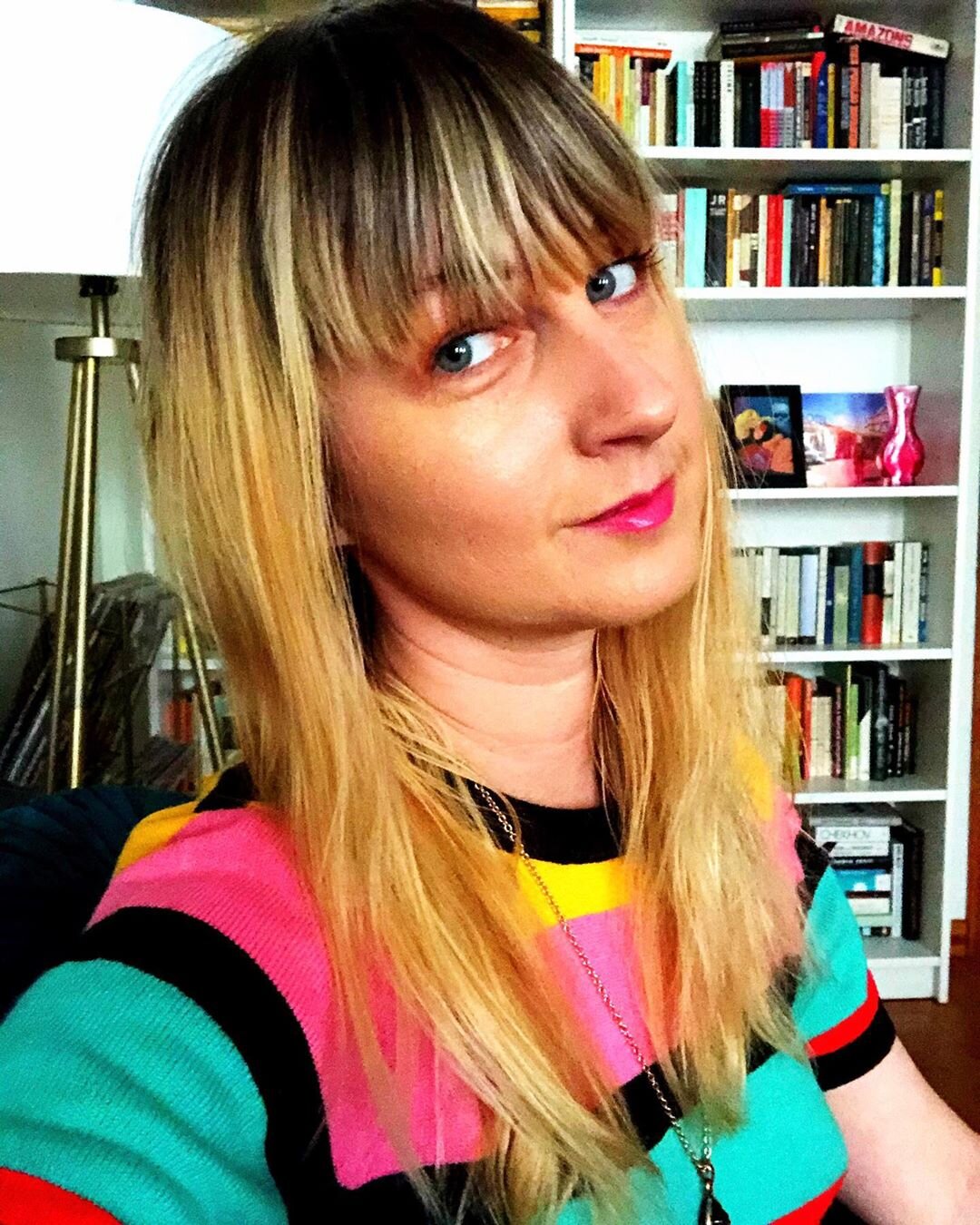Our Lives Don't Rhyme
“Thirty-five and still alive.”
“Thirty-six and just won’t quit.”
“Thirty-seven and not yet in Heaven.”
Each year, before watching her children blow out her birthday candles, my mother coins a new tagline to affirm her survival despite increasingly improbable odds. She is terminally ill. Multiple Sclerosis and resultant lung failure.
At eighteen, my mother’s beautiful thin frame keeps collapsing in her living room and falling off the school bus steps. Her beautiful golden-green eyes keep losing sight, one eye and then the other. Her family doctor says it could be MS.
She is twenty-four when she marries my handsome father. She’s a lithe and comely brunette with a bright smile. Fashionable and charming. But she refers to herself as a lame late bloomer. Shortly thereafter, she births two children even though the doctors warn her we could all die. We come close, but recover.
Throughout her life, my mother journals her thoughts, mostly quotidian details of errands, her children’s lives, and doctor’s appointments. She wants to be a writer but the rheumatoid arthritis and MS shatter this hope. She enjoys baking, reading, crafts and sick jokes. She wishes everyday was a holiday with its own decorations and traditions and rituals. She’s always in pain.
“Thirty-eight and looking great.”
“Thirty-nine and feeling fine.”
Her stupid rhymes are at once an acceptance and a refusal of her impending death. A way to laugh in the face of mortality while still acknowledging it’s in on the joke. A way to postpone the inevitable punchline.
It’s my mother’s fortieth birthday. In thick silence, I linger at her hospital bedside clutching the card I’ve made for the occasion: purple construction paper, a careless drawing of flowers, a sappy poem. I clutch this childish token until my hands cramp while the machines that keep her alive hiss and sputter. In the poem, I rhyme “born” with “forlorn.” I read it aloud even though she is comatose, each disingenuous line depicting a future we both can’t imagine.
There is no hokey tagline. I can’t figure out what to rhyme with forty.
Exactly a week after her birthday, Mom dies in the bland cube of the Intensive Care Unit while my younger brother and I vacation at our godmother’s Miami home. We won’t be told of her death until Dad picks up and drives the two hour stretch of Florida turnpike back to our grandmother’s house to break the news. Gorging on milkshakes and watching rented movies, we are protected within the dopey haze of summertime fun. We forget our mother’s limp and weakened body. While she is removed from wires, we float on our backs in our godmother’s swimming pool, our tanned faces turned to the sky. While she takes her last unsupported breath, we gleefully hold ours, plunging to the scratchy blue bottom for what seems an eternity before bobbing to the surface, satisfied with what our lungs can do.
That day the sun shines so bright I shield my eyes.
The instant I know my mother’s died, I am fixated on turning forty. With each rapidly passing year, my panic escalates as I await my certain hurtle down the other side of the hill. Until then, each minute feels fraught. But not with the fear of dying. That fear is a given. It is the fear of outliving her. The countless hours I’m gifted that I’ve squandered and flattened into a chronology of missed opportunities. Forty is the ultimate deadline. And I’m about to meet it .
“Don’t peak too soon,” a teacher advises on a high school trip to Europe. She’s not my teacher but she notices me, how I don’t fit in with my vintage purple corduroy pants, my dyed black hair, my hideously shiny shirts that take big ovaries to pull off. She writes down the phrase on a piece of paper along with a summer reading list: Camus, Hesse, Lonesome Dove. I take it to heart, placing that trite aphorism gently within my sternum, feeling it flutter there, later in life, whenever I realize I’ve written nothing, published nothing, accomplished nothing, amounted to nothing. There’s still time, I remind myself. Better not to peak too soon, remember? I place my palm to my chest, reassured. But at some point I have to peak. At some point, I have to reach my pinnacle or else I’ll just slide up and down the same old slope: panting and dirty, with nothing to show for it.
In my late twenties, to assess whether I am truly inhabiting a full life, I craft my own obituary. On the subway, while waiting for a friend in a bar, during a snooze of a work meeting, I imagine that I’ve keeled over at that very moment. Then, I take stock of my life’s key events to see how they read.
Each time I complete this exercise, I decide my life is hopelessly emaciated, in desperate need of meatier bona fides. I am running out of time to construct the exemplar obituary. I am running out of time to stuff my life with the richness and glory my mother’s own life unjustly lacked.
At thirteen, I am motherless. For a grieving adolescent, I play it safe. There are the errant after-school makeout sessions behind school playgrounds, an awkward fumbling of tongues and limbs. Flushed skin and swirled spit and groping each other’s warm and wet places as if we are blindfolded in the dark, our hands guiding us until we startle ourselves by making contact. But at sundown, I always remove my hand first, dashing through the crushed leaves to make curfew.
My one regret is that I am too good. I could do far worse. I’m capable of it. I could screw up and live to tell the tale. I could be a teenage groupie, a wise-ass runaway. Instead, I continue to make honor roll and stay home on Friday nights because that’s when they play ’80s teen movies on TV. Plus, when will I finish transcribing all those Cure lyrics into my poetry journal?
My life then is brittle bones aching for flesh. I am simultaneously obsessed with living a life that honors my dead mother’s memory and filling the void inside me with any boy’s touch. To be of use is to be alive. After desperately tugging at the center of a throbbing heat that promises to keep me warm, I wipe my hands on the back of my jeans without so much as a look back and ride my bike home where I’ll finish my homework, tolerate my father’s distance during dinner, wash dishes, shower and, finally, alone in my room, toss my dirty after-school secrets into the yawning chasm of my own body waiting to feel absolutely nothing.
With adults, I aim to please. To impress. Teachers, counselors, my mother’s old friends. Notice how self-sufficient I am. How grateful but ultimately needless I am of your time and guidance. I can fix this on my own but I appreciate your support and encouragement. Thank you. Thank you. Thank you.
With boys, I aim to please. To impress. Danny, Chad, and dreamboy I don’t know yet. Notice how skilled I am. How grateful and needful I am of your body and attention. I can’t get through this on my own without your gaze and grip. Please. Please. Please.
Please and thank you. Please and thank you. This is my mother’s refrain. With clenched teeth and a brick-red grimace, she foists me in front of company, her bony hand clutching my shoulder: “What do you say, Jillian?” Even now, it stiffens my back, tightening my spine into a wire that snaps me into submission, bends me into compliance. Don’t forget to say it. Please and thank you. My mother tells me that life is deference and politeness, that life is shoulder straight, hands folded and mouth shut, that life is forever turning to your mother to ask her if it’s okay if you take that cookie, that job, that small step forward to anywhere until you suddenly notice she is no longer there to answer.
When I graduate high school, I’m a master at self-parenting, at playing the maternal role for myself and others, whether we need it or not. I’ve buried rebellious, adolescent me. Deep. My mother’s voice fills my still-grieving cavernous spaces, a constant echo in the darkness. It is her voice when speaking to the school-age version of me, chiding and patronizing. Stunted and performative. Sometimes sweet, sometimes sarcastic. Sometimes sober and sometimes slurred with prescription meds.
All through college, I am a moderate drinker. I avoid hard drugs. I rarely procrastinate on term papers. I am the designated driver, the dutiful long-distance girlfriend, the dependable friend who’d rather talk until dawn then party into the morning light. Call me for a ride home. Let me talk you out of a risky choice. Allow me to listen and listen because I’m unsure if it’s me when I’m speaking.
Seek the beauty in the mundane, my mother says. Or is it me that says this? I feed myself a steady diet of simple moments-turned-satisfying memories throughout my twenties: Friday nights at the movie theater with my closest college friend. Long talks about philosophy and film and music over warm bread and olive oil at our favorite Italian restaurant. Night drives across Florida with music blaring and deer dancing across darkened highways. Reading all the books in the college library that aren’t on the class syllabus. Swallowing the waterfront sunset view with notebook in hand, scribbling away ephemeral thoughts that sink into my depths, never to be plumbed again. Poolside patio table chats over coffee with my dearest girlfriends. The smell of cigarettes and mind power. But something is missing. I hear my mother ringing in my ears.
Sometimes I turn down the volume of her voice and find myself shoplifting books from Barnes and Noble with an exultant laugh, in a car with a strange man who keeps a knife in his car’s sun visor, dancing in thunderstorms, receiving tattoos in unsanitary kitchens, making eye contact with strangers, speaking in public without my heart stopping, putting my head out the window of a moving car with the radio blasting as the night breaks through, all silver and sad and beautiful, saying “yes” to anything scary, saying “yes” to anything at all, giving my heart freely to good men, bad boys, and men whose hearts rest in the palms of their wives and children. And that’s when I feel it. The flesh of it. A life coursing with blood, aflame with its own chemicals, exhilarated in its own skin. It’s me. Woman me. Alive. In Technicolor.
In those brief intervals when I live with my mother on mute, I experience epiphanies on the verge, perfectly incomplete. I willingly enter situations where I may flourish or fail, be endangered or enraptured, save my heart or break it, live or die. I prefer the ache, the endless longing and reaching for the gorgeously elusive. I prefer that heart blooming through the throat, tears filling through the stomach, head meeting sky feeling of unquenchable desire. When you’re satisfied, you’re spent. Your body goes numb with its own dumb happiness. How can that compare to the tingling feeling before you taste the unfamiliar? How can that compare to entering those moments that don’t even know what they are until you devour them?
But this is not the stuff of good obituary. This is not the stuff to make a mother proud. This is not the stuff of a full life. With or without my mother’s voice, I’m failing. There are no awards, no publications, no indications that I am recognized for anything beyond existing. I set out to live a model life that would make good on the narrative my mother started before her body betrayed her. An intelligent and honestly good woman wants to be a writer and find her voice. I thought I could resurrect my mother, using the ticker tape of her maternal advice to shape my path. Yet, all I’ve managed to do is silence my own voice. All I’ve managed to do is survive.
But maybe that’s enough, I tell myself. I am the first in my family to graduate college, I have an apartment with real furniture, my body is painless and free. I am living a life my mother would like to call her own. A life in which she is healthy with no children and an abundance of free time to simply savor without feeling like a burden or a failure or a pathetic, atrophying thing. To have my own ambitions reeks of hubris. Just be content, goddammit. This is so much more than she ever got.
And then I say, but: Wouldn’t she want more? Wouldn’t she want to write and write, her hands happily aching with the work they’ve done? Wouldn’t she want to commit to her art and know she was good at it? Wouldn’t she want to press up against the dangerous, the mysterious, the ineffably sublime and see what happens?
My mother fails to record in her journal those parts of her life that don’t adhere to the prescribed obituary narrative. Like when she overcame a lifelong fear and got her driver’s license at thirty-five and squealed endlessly like she’d won the lotto and she picked my brother and I up early from school and take us to R-rated films at the local movie theater just because she wanted a place to show off her new freedom. Or like when she felt and looked like a Hollywood starlet in her early thirties and danced in the living room to her Top 40 CDs in full stereo and insisted that we join her and wouldn’t take no for an answer and moved her denim-clad hips like a permed siren. Or like when I saw the back of her soft pink sweater in our kitchen holding hands with a family friend, his voice low and assuring and hers barely a whisper above the sound of the sink water flowing like a river, drowning out the tension in their limbs and faces. Eyes closely locked like the necks of swans. Did she understand then about not peaking too soon? Did she hold this wisdom since the day she knew she’d die young? Does she want me to shake her loose from my bones already and politely cover her mouth already and get to living?
Yes, yes and hell, yes.
As I inch closer to forty, I unearth parts of myself that I’ve buried. More frequently, I rise from the pit of emptiness and utter a noise that’s primal yet assured. I recognize it as my own voice. I seek out moments that are deceptively simple but pregnant with possibility. I stop writing my obituary in my head. I stop giving a fuck.
I’m still plagued by the fear of outliving my mother but I give my body permission to wander and transgress, to speak for itself. I am mindful of the places I still want my body to go. And I don’t just mean vacations in foreign lands I told myself only rich people can visit. I mean the unexplored spaces within me: spiritual and sexual and intellectual and emotional and damaged and delicious and flowering with want. I want to write often and hard. I want to walk into rooms knowing I belong. I want to, just once, find myself beautiful. My want for these things is ravenous. Insatiable. I’ve stolen back my life from a dead mother, a grieving daughter. I am a nearly forty-year-old woman who’s so, so hungry.
What would my mother have rhymed with forty if she could speak that day in the hospital? “Forty and so sporty?” “Forty and warty?” Or perhaps, “Lordy, Lordy. Look who’s forty.” I hope that sitting on her literal deathbed, she’d have scrapped the slogans and faced the truth. Nothing rhymes with forty, I’d tell her. But not in the way she thinks. You see, this is about us. Her and me. And if to rhyme is to find repetition in our endings, then I choose to break the pattern. Our endings will not be similar. Our lives will not rhyme or contain intentional parallels. I will not mirror the dreams or ambitions of healthy-her or child-me. At forty is when we diverge, when I find my voice and, finally, bury hers.
-Jillian Luft
Jillian Luft is a Florida native who currently resides in Brooklyn. She is a full-time educator, emerging writer and self-professed late bloomer. She will turn 40 in September.





















